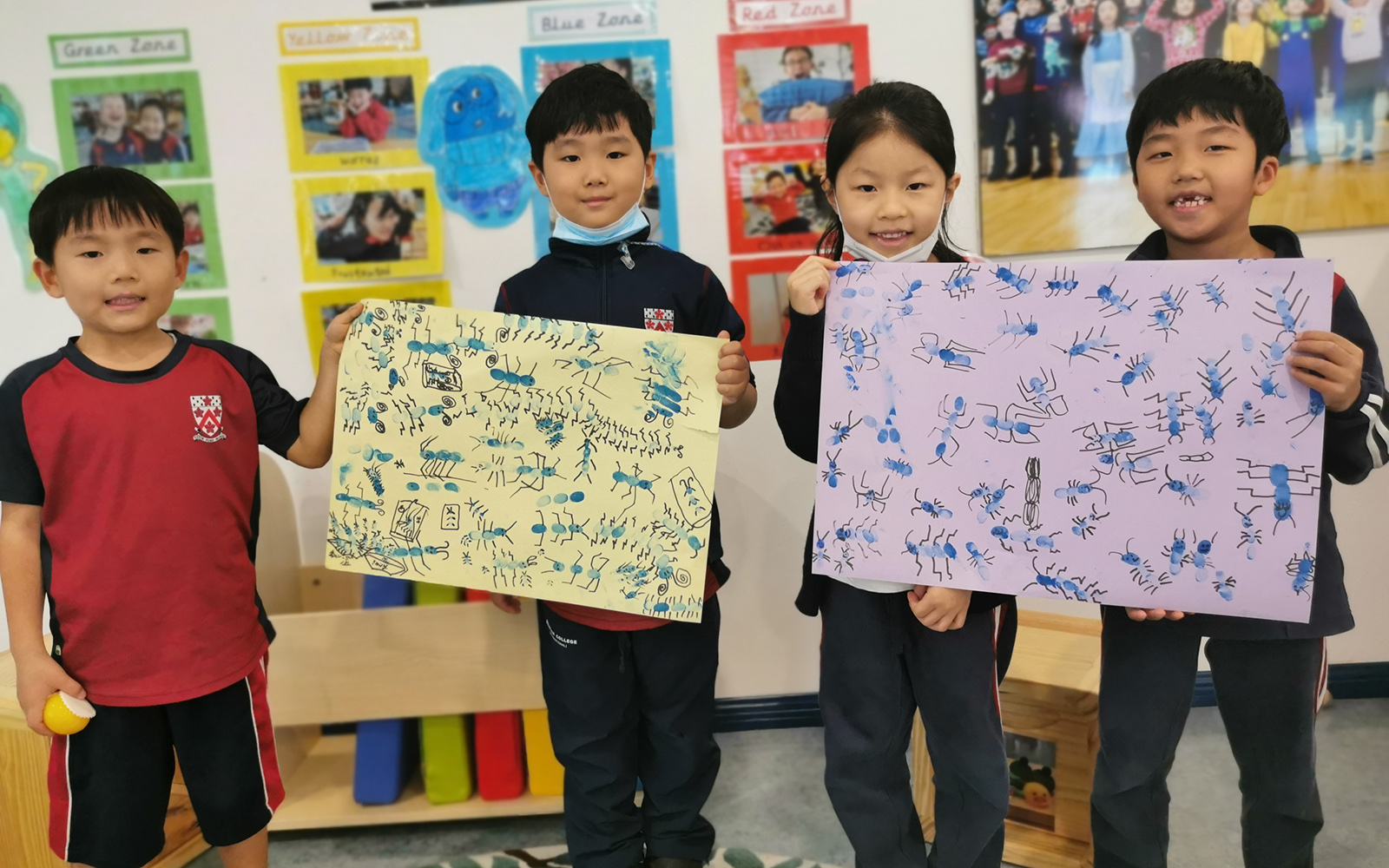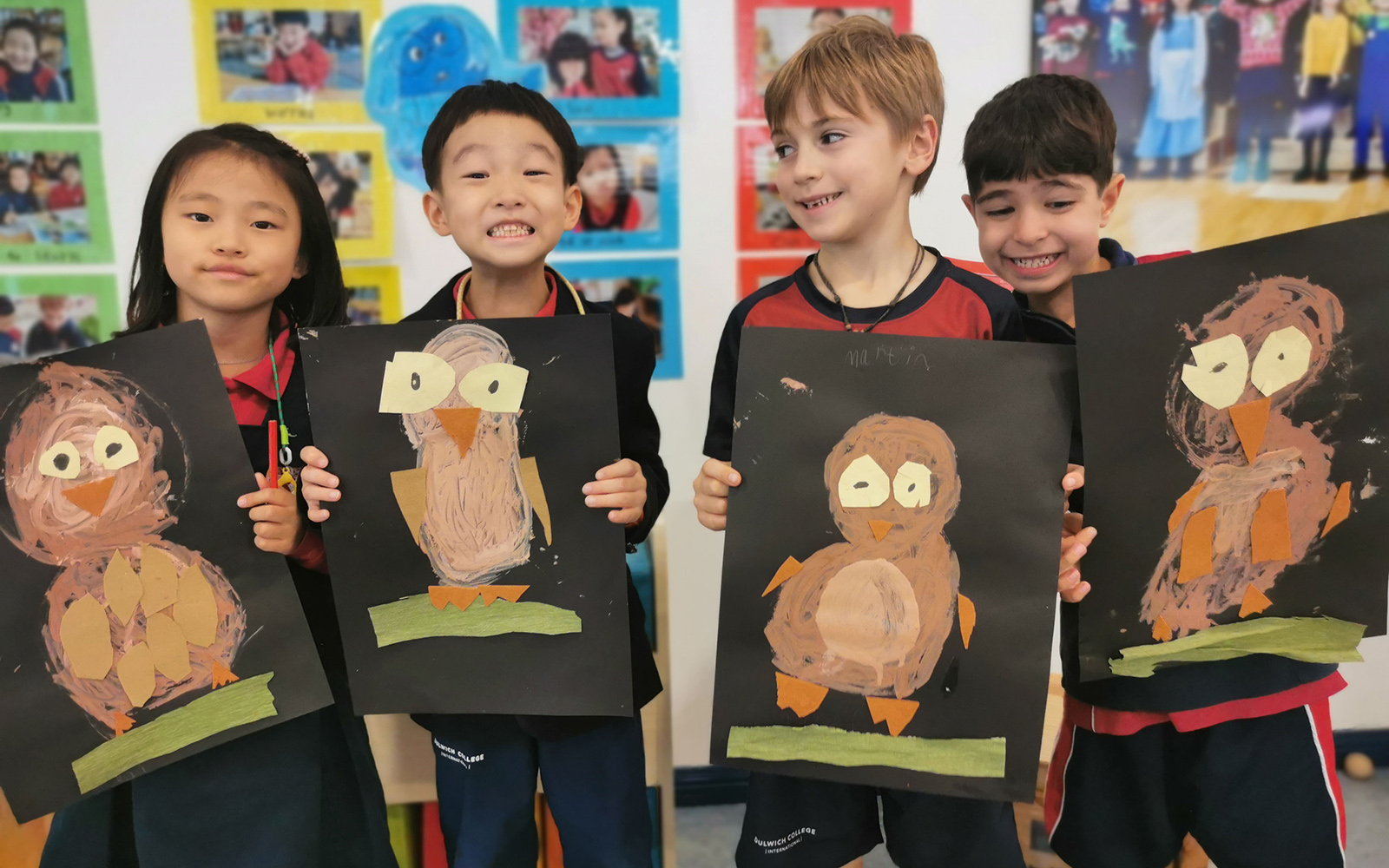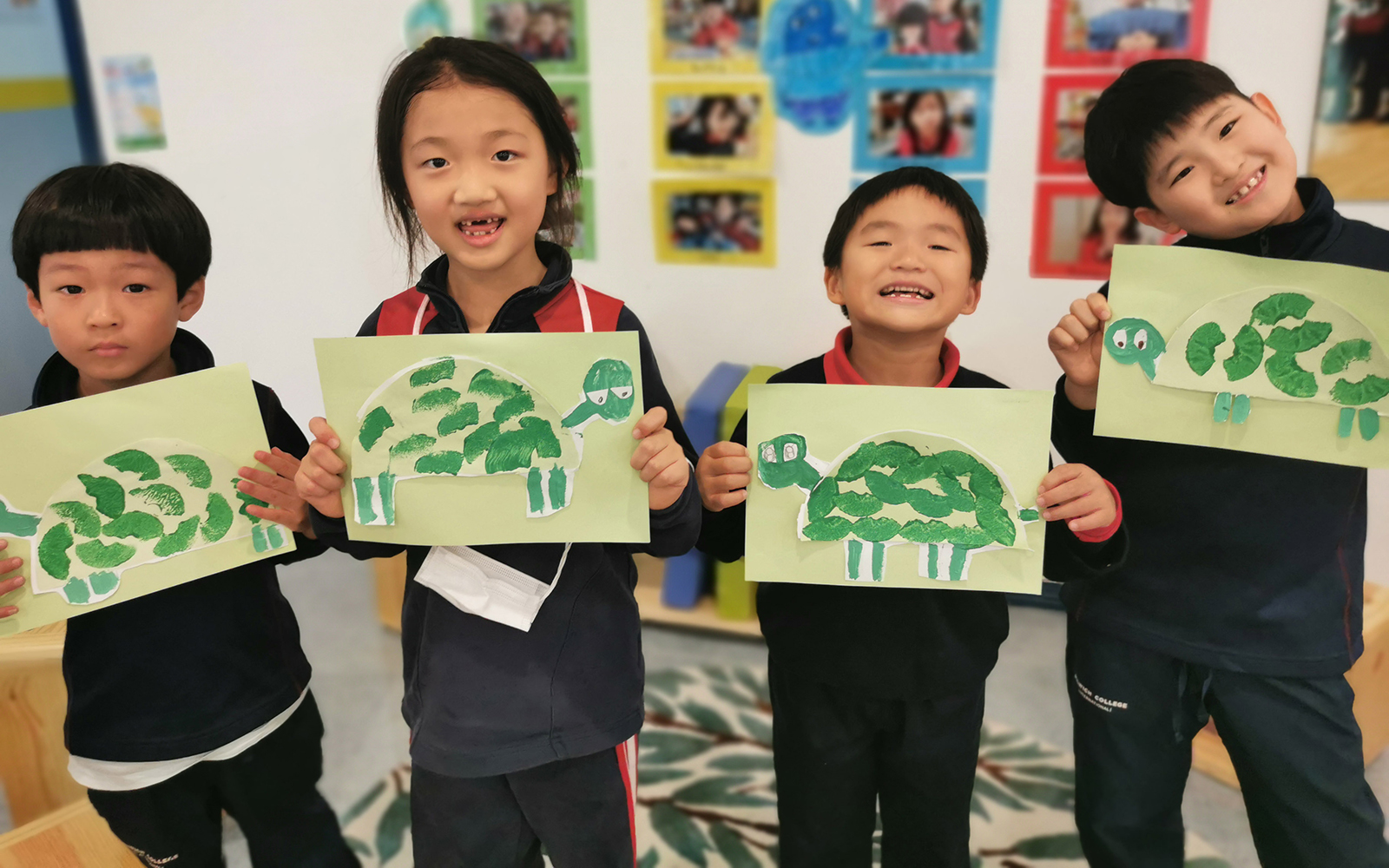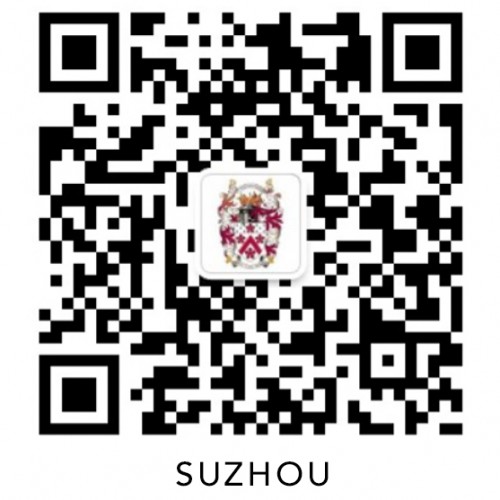DUCKS Teaching Approaches - Animal Learning

Within our lessons, three types of learning are happening. Children will be discovering or being taught new knowledge; they will be practicing or acquiring skills and, perhaps most importantly, attitudes to learning and life-long learning powers are being established. In DUCKS, our teachers harness the power of all three types of learning to ensure the children’s success. In line with the whole Dulwich difference, we adopt a holistic approach to education. Instead of simply delivering facts and information to learn, we develop children into confident and capable learners with the skills and motivation to learn for themselves.
As our classroom culture is student-centred, we believe it is important that children have a deep understanding of the attitudes to learning; with this they can take responsibility for their learning, set goals and reflect on their progress. The children first meet the animals in Nursery where the teachers praise the children using the animals, supported by visual prompts.
As a routine now at DUCKS, before Assembly, all children in KS1 are excited to find out who is their classes Golden Child; an award chosen by the teachers based on the children’s Attitude to Learning. By the time children are in Year 2, many will independently reference the ATL animals when talking about their learning.
Our ATL Animals are Team Ant, Wise Owl, Creative Unicorn and Trying Tortoise. These 4 animals cover the ‘Attitudes to Learning’ our children utilise to succeed in DUCKS and beyond.
Team Ants

Team Ants are collaborators. Collaboration is a key life skill yet, children can learn to work together to achieve a common goal from a very young age. In DUCKS, we develop these skills and provide children with opportunities to work together and learn from their peers. In a collaborative classroom environment, children’s confidence grows as they celebrate their individual strengths and support each other. Pengqin and Yuki from 2S remember being Team Ants; ‘We made a cool Lego house as a team. We needed to work together’.
Wise Owl

Wise Owls are reflective thinkers; making links between old and new learning and growing from their mistakes. When children are reflective, they can improve future performance by analysing what they have learnt, how far they have come and what they could do better next time. This is a challenging process, yet we have high expectations for our students and believe that they can, age-appropriately, begin to reflect and verbalise their learning when given the appropriate scaffolding. Eddie from 2C says that ‘Wise Owls think lots. I was a wise owl to use adjectives in my writing’.
Creative Unicorns

Creative Unicorns have the confidence to express themselves. The ability to create something new from personal feelings and experiences can reflect and nurture children’s emotional health. Whilst the creative arts such as art, music and dance are a huge part of our teaching in DUCKS, we also promote creativity in all areas of learning. Creative learners are imaginative, inventive and they enjoy taking risks. When the children are given the space and encouragement to be genuinely creative, they can come up with their own amazing and original ideas. Lucas in 2Z defines a Creative Unicorn as ‘making something new like my aeroplane’.
Trying Tortoise

Trying Tortoises are resilient when faced with challenges. When children are resilient, they are more curious, more adaptable and braver. Relationships are at the heart of our pedagogy in DUCKS. In order to learn, students must come across problems that are challenging to solve. Not only do they get remarkable satisfaction from overcoming these obstacles, but this is when the most valuable learning happens. Additionally, the teachers in DUCKS model life-long learning; articulating our own thoughts and feelings to the children as we try new things and strive to be the best we can be. Tae-i in 1S explain that a Trying Tortoise as ‘when you make a mistake you just keep going and keep going. When you try everything, you can learn so much’.





